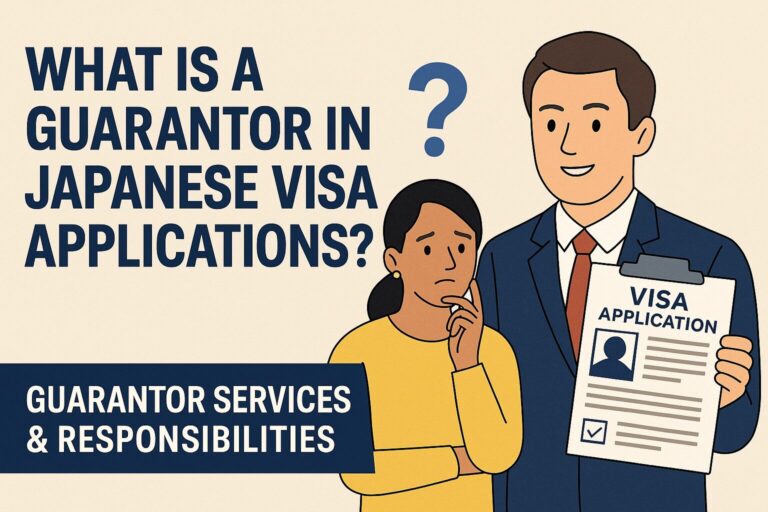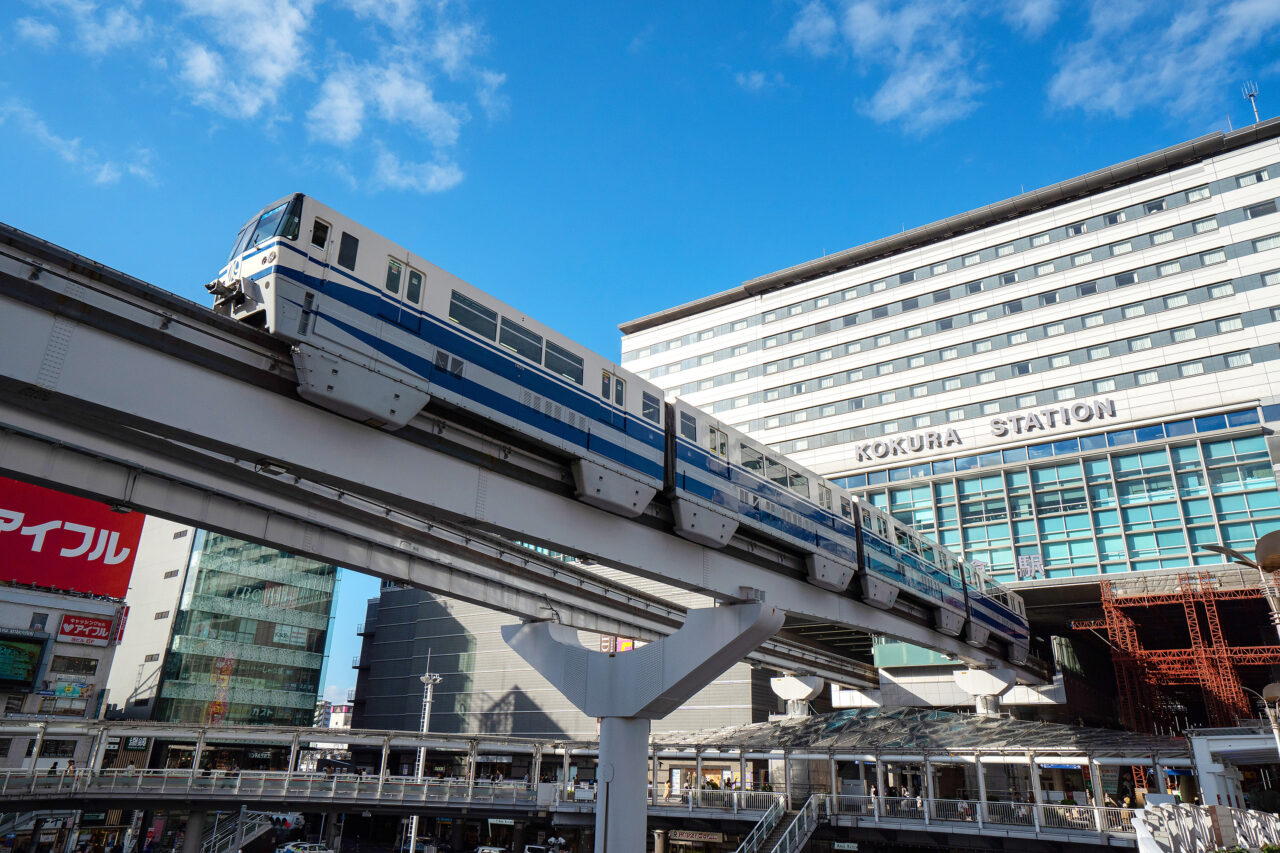What Is a Guarantor in Japanese Visa Applications?
What Administrative Scriveners Can and Cannot Do — And the Truth About Proxy Services
“Can I apply for a visa if I don’t have a guarantor in Japan?
Can you, as an administrative scrivener, be my guarantor?”
We’ve been receiving these questions more and more, especially from people applying for short-term stays or permanent residency.
In this article, we will explain:
– The role and responsibility of a guarantor in visa applications
– What administrative scriveners are allowed (and not allowed) to do
– The truth behind guarantor proxy services and the risks involved
Whether you are an applicant or supporting someone abroad, this guide will help you navigate this important requirement.

- 1 What Is a Guarantor and What Do They Guarantee?
- 2 Why Administrative Scriveners Cannot Be Your Guarantor
- 3 Visa Types That Commonly Require a Guarantor
- 4 What Are “Guarantor Proxy Services”? Are They Safe?
- 5 Yes, Immigration Is Watching
- 6 What If I Can’t Find a Guarantor?
- 7 What We Can Do at Trust Administrative Scrivener Office
- 8 Final Thoughts: A Guarantor Is Not “Just a Name”
- 9 📩 Contact Us
- 10 Contact Us
What Is a Guarantor and What Do They Guarantee?
When applying for a visa to Japan, certain visa categories require a document called a Letter of Guarantee(Mimoto Hosyo-syo).
This document typically promises support for:
– The applicant’s living expenses while in Japan
– Return travel costs if needed
– Ensuring the applicant follows Japanese laws
⚠ This is not a legal liability like a co-signer or loan guarantor.
The responsibility is considered moral or ethical rather than legal.
However, if the guarantor does not fulfill their role, they may be seen as unfit to act as a guarantor in future applications — which can impact both the applicant and the guarantor.
Why Administrative Scriveners Cannot Be Your Guarantor
Administrative scriveners (Gyoseishoshi) are professionals who help prepare legal and immigration documents.
They are not personally involved in your case the way a friend, employer, or family member would be.
That’s why scriveners cannot legally or ethically act as your guarantor.
A guarantor must be someone with a real personal or professional relationship to the applicant — like:
– A family member or spouse
– A long-time friend
– A company or organization hosting the visit
📌 Using an unrelated third party as a guarantor can lead to visa denial.
Visa Types That Commonly Require a Guarantor
| Visa Type | Guarantor Required? |
|---|---|
| Short-term Visa (Tourism/Business) | Often required |
| Permanent Residency | Required in most cases |
| Spouse of Japanese National | The Japanese spouse becomes the guarantor |
| Long-Term Resident Visa | Frequently required |
| Work Visa | Sometimes required (usually the employer) |
Note: This is a general guideline—requirements may vary depending on individual circumstances.
What Are “Guarantor Proxy Services”? Are They Safe?
The Business of “Buying” a Guarantor
Recently, some online services claim to provide a guarantor for a fee — usually around ¥50,000–¥70,000.
They will send you a signed Letter of Guarantee with an unrelated person’s name on it.
Claimed Benefits:
– You don’t have to ask friends or family
– Fast document delivery for your application
The Reality:
– Immigration officers track repeat guarantors
– If they see the same person acting as guarantor for applicants from different countries or regions, they become suspicious
– Guarantors often don’t answer calls from immigration
– Some guarantors deny ever signing the document
– In worst cases, the person may not even exist
– Your personal information could be misused or sold
Yes, Immigration Is Watching
The Immigration Bureau keeps records of who is listed as a guarantor.
If the same person is named as guarantor for applicants from Vietnam, Myanmar, China, etc.—and from different regions of Japan—it’s obvious the person is working with a guarantor proxy service.
This could lead to:
– Visa rejection
– Blacklisting of the guarantor
– Serious consequences for the applicant
What If I Can’t Find a Guarantor?
Try Asking Someone You Trust
Be honest. Explain that the guarantor role involves moral responsibility, not financial or legal burden.
People who might be willing:
– Your employer or business partner in Japan
– A long-time friend
– Your host family from a past stay
– Your spouse or their relatives
Still no luck?
For permanent residency applications, if you have a strong record of residency, taxes, and community involvement, immigration may accept your application without a guarantor. What matters most is a well-prepared, trustworthy application.
What We Can Do at Trust Administrative Scrivener Office
While we cannot act as your guarantor, we are happy to help you with:
– Preparing Letters of Invitation and Guarantee (in English or Japanese)
– Creating a detailed travel or stay itinerary
– Reviewing and correcting documents written by your guarantor
– Full visa application support for:
– Short-term stay
– Spouse visa
– Permanent residency
– Work visas
🚫 Please note: we do not provide or introduce guarantors.
Final Thoughts: A Guarantor Is Not “Just a Name”
The guarantor system exists to prove that the applicant has support and ties to Japan.
It’s not just a formality — it’s part of immigration’s evaluation of your reliability.
Using false or suspicious guarantor information may not only lead to denial, but can also affect your future visa applications.
At Trust Administrative Scrivener Office, we believe in honest, professional, and sustainable support.
If you’re struggling to meet requirements, don’t hesitate to reach out — we’re here to help.
📩 Contact Us
We provide personalized visa support for individuals and businesses.
Available in English, Japanese, and Chinese via email or online chat.
Contact Us
Office Name: Trust Administrative Scrivener Office
Administrative Scrivener: Keiko Utsunomiya
Email: info@trust-gyosei.com
Address:3F-1-1-1 Kajimachi, Kokurakita-ku, Kitakyushu-shi, Fukuoka, Japan










